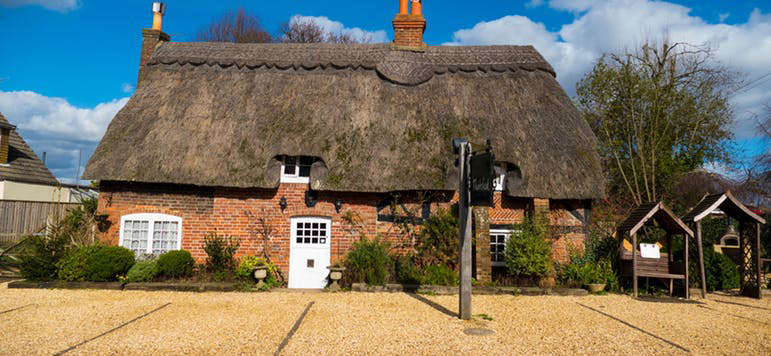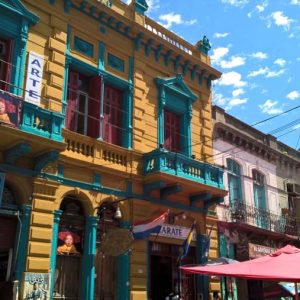One of the advantages of being a Silver Traveller is that you may enjoy the ‘mid-week weekend break’, when fares and room rates are likely to be lower, and fellow travellers thinner on the ground.
After decades of work, during which leisure had to be crammed into the 48 hours that remained after fulfilling one’s Monday to Friday commitments, it is a great joy, upon retiring, to know that the ‘weekend’ can actually run from, say, Tuesday afternoon until Thursday morning.
As a general rule, hotels outside our major towns and cities are quiet during the week and prepared to offer discounted rates in order to fill their otherwise empty bedrooms.
Indeed, a chap I knew well many years ago decided to encourage this trend by doing deals with a couple of hundred UK hotels which he listed in a directory which people could buy for about £20. You could telephone any of these hotels (mentioning the directory of course) to book a room for a couple of nights, and pay absolutely nothing for that room.
All that was required of you was a promise to eat at least one evening meal in the hotel restaurant.
It worked because the hotels were happy to make a profit on that evening meal and assumed you would also patronise the bar (probably spending more than usual in view of the fact that your accommodation wasn’t costing a penny). For them, the alternative was an empty room, generating no profit.
The scheme was not the success it should have been, because people thought it was too good to be true. Still, variations of it are around, and the internet has several sites offering cut-price accommodation for those who are able to avoid the busy times.
Which brings me back to this ‘mid-week weekend’ idea, and a hotel called The Thatched Cottage Hotel.

It’s called that because it is a large thatched cottage in the town of Brockenhurst, Hampshire. A Grade 2 listed cottage dating from 1627. I stayed there for a couple of (week) nights recently and thoroughly enjoyed the experience. It is absolutely perfect for a mid-week break and has the added advantage of being a short walk from the railway station – ideal for folk who aren’t keen on driving.
I have to admit that business rather than pleasure took me there – though the Annual General Meeting of the British Guild of Travel Writers did manage to weave in a considerable amount of pleasure – primarily that of good company and equally good conversation.
Our business sessions were held in the lecture theatre at the National Motor Museum, Beaulieu, but the itinerary enabled us to meet on the first evening for drinks and refreshment at the impressive Rhinefield House Hotel, and, on the second, enjoy a Gala Dinner at The Domus, Beaulieu, preceded by drinks in Palace House.
Rhinefield is an impressive pile, with redwood trees, rhododendrons and azaleas in its large and manicured grounds. The building itself, mixing Gothic and Tudor in a riot of turrets and crenellations, looks like something from ‘Game of Thrones’, but is actually a fine example of High Victorian, intended to give its original owner the sort of status that would impress the neighbours.
In contrast, the Palace House at Beaulieu is the real deal. Originally the 13th century gatehouse of Beaulieu Abbey, it was bought by Thomas Wriothesley in 1538 and has been in the family ever since – the family being that of Lord Montagu, who was on hand to welcome us, and preside over that evening’s Gala dinner.
And, while I’m name-dropping, one of the chaps at our table was Lord Manners, who is the Official Verderer of the New Forest.
No, I didn’t know what a Verderer was, either, but I took the trouble to find out and, in doing so, stumbled upon a vocabulary of ancient terms describing the various rights enjoyed by the Commoners of the New Forest.
There’s ‘estovers’ (the right to gather wood for fuel), ‘turbary’ (the right to cut peat, also for fuel), and ‘marl’ (the right to dig clay). In the autumn, the New Forest Commoners have the right to turn out their pigs, to eat the acorns which are thick on the ground and would be harmful to ponies and other stock. This right is called ‘pannage’ or ‘mast’.
Verderers, I discovered, are the chaps who manage the New Forest. Agisters are the chaps they employ to help them carry out this task. For someone who loves unusual words, that vocabulary from the past more than justified the trip, though in Brockenhurst and Lyndhurst and many other spots I found plenty to interest me.
I reckon you’d find plenty to interest you, as well. So think about that part of the world when you are considering your next ‘mid-week weekend break’.
As I said, the Thatched Cottage Hotel would make a great base for a couple of days, especially in the late spring and early autumn when the landscape is particularly attractive. My room was in a modern block at the rear of the main building, but colleagues housed in the Cottage itself were equally enthusiastic. Pleasant service and enjoyable food added to the experience.
On the train back to London I thought about the New Forest and how it has retained its old customs and culture down the centuries. And of the pressures that the 21st century has brought to bear upon it. Its National Park status gives it some protection, but the communities located around the Park boundary must deal with the same problems – the need to provide accommodation and employment for its young people being the most pressing – as bedevil those in other parts of the country.
But, oddly enough, I also found myself thinking of Orlando, in Florida – because my mind was still dwelling on unusual and old words.
You see, I bought a property there, many years ago, and discovered that, in Orange County, what most of America calls property tax is known as ‘millage’. According to Brewster, the first use of that word was in 1891. But I think it must be far older. It sounds as if it should be a relic from medieval times, and I reckon that, if you looked closely enough, you’d find ‘millage’ lurking somewhere in the vocabulary of the New Forest. It’s a natural companion to ‘pannage’ and ‘turbary’.
Well, I think so, anyway.
Special Offer
Silver Travel Advisor members receive a discount of 10% if they book direct with the Thatched Cottage Hotel. For more information visit www.thatchedcottage.co.uk.











